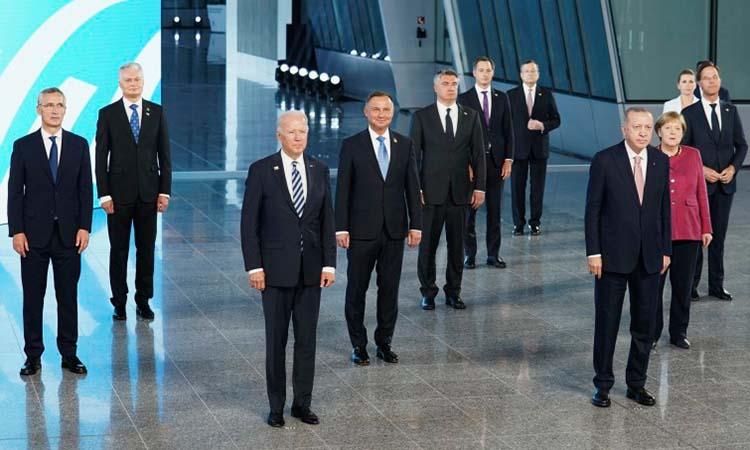The NATO communique on Monday took a tough stance against China, saying it presents “systemic challenges” to the rules-based international order. The statement comes after US President Joe Biden urged the alliance members to “stand up to China’s authoritarianism”.
It was Joe Biden’s first NATO summit as the President of the United States. He sat down with all the country heads in alliance, something that former US President Donald Trump openly denounced.
The stand of NATO on China gained further prominence as it came a day after the Group of Seven (G7) summit communique condemned Beijing and its policies around the world. The G7 scolded China on alleged violation of human rights against Uyghur Muslims in Xinjiang, deteriorating ties with Hong Kong and Taiwan along with other economic policies of the country.
Also Read | US CDC reclassifies Delta Covid-19 strain 'variant of concern'
The NATO communique talked about the “assertive behaviour” of China.
"China's stated ambitions and assertive behaviour present systemic challenges to the rules-based international order and to areas relevant to alliance security," NATO leaders said in the communique.
From China's investments in European ports and plans to set up military bases in Africa to joint military exercises with Russia, NATO has now agreed that Beijing's rise deserves a strong response, although envoys said that would be multi-faceted.
Also Read | Israel strikes in Gaza after arson attacks
However, it is to be noted that both the G7 summit and NATO communique, were heavily carried and influenced by the United States. The ideological war between China and the USA has gained prominence ever since China started dominating the world politics domain in the last few decades.
Moving away from the stance of Donald Trump, who vehemently denounced the need for NATO for America and accused Europeans of contributing too little to their own defence, Joe Biden clarified that the alliance's mutual defence pact was a "sacred obligation" for the United States.
"I want all Europe to know that the United States is there," said Biden. "NATO is critically important to us."
After heavy scrutiny for NATO which just about survived under the Donald Trump era, Biden reassured that the US is committed to the cause of the European alliance. He went on to say that “America is back”.
"The leadership of the Republican Party is fractured and the Trump wing of the party is the bulk of the party, but it makes up a significant minority of the American people", Joe Biden said.
In NATO's glass and steel headquarters on the outskirts of Brussels, Secretary-General Jens Stoltenberg said China's growing military presence from the Baltics to Africa meant nuclear-armed NATO had to be prepared.
On Monday, after the G7 communique caused a major stir of diplomacy in the world, China's embassy in London retorted by saying that it was resolutely opposed to mentions of Xinjiang, Hong Kong and Taiwan, which it said distorted the facts and exposed the "sinister intentions of a few countries such as the United States".


















